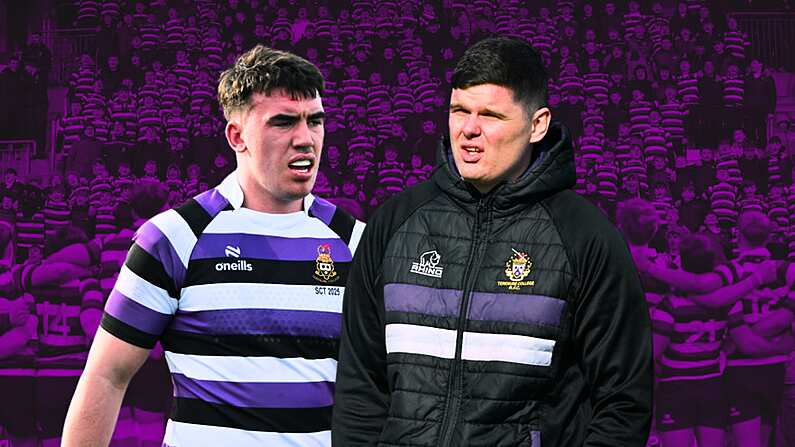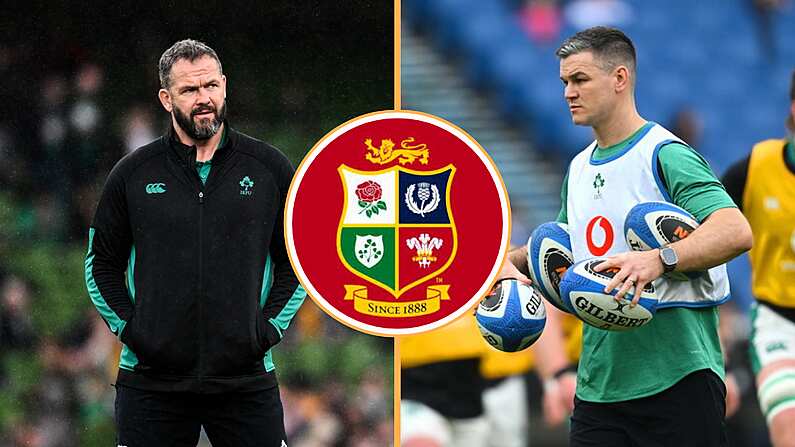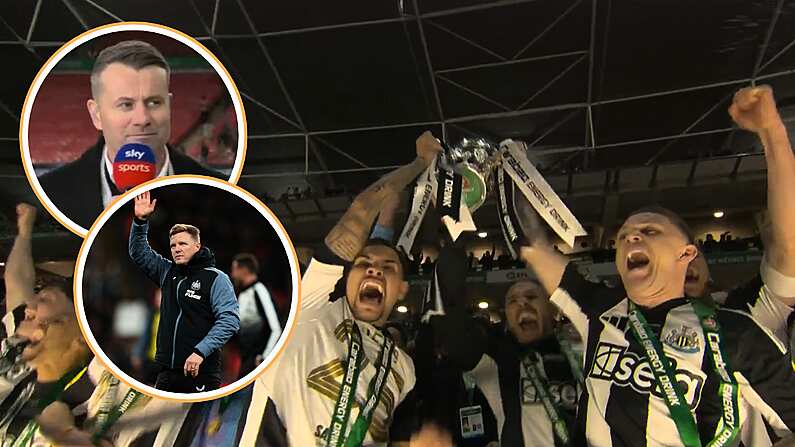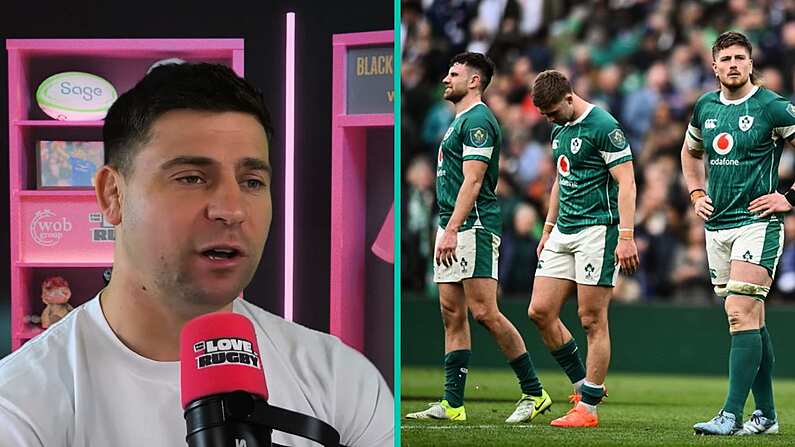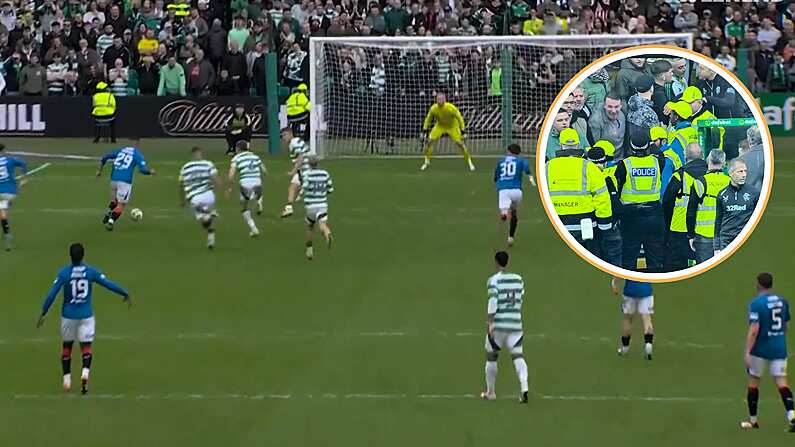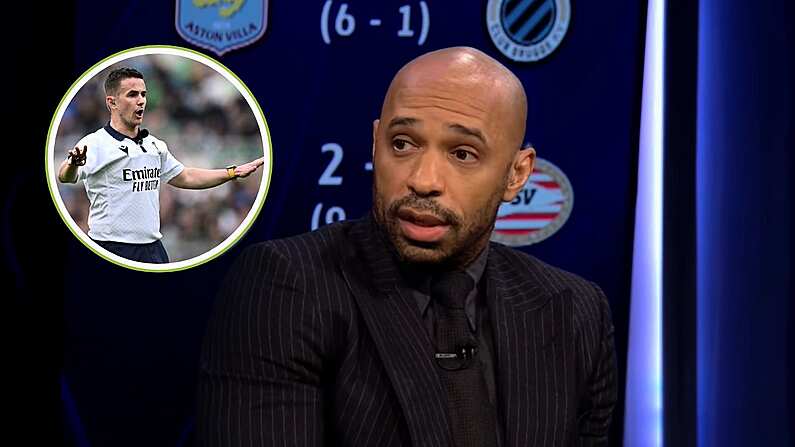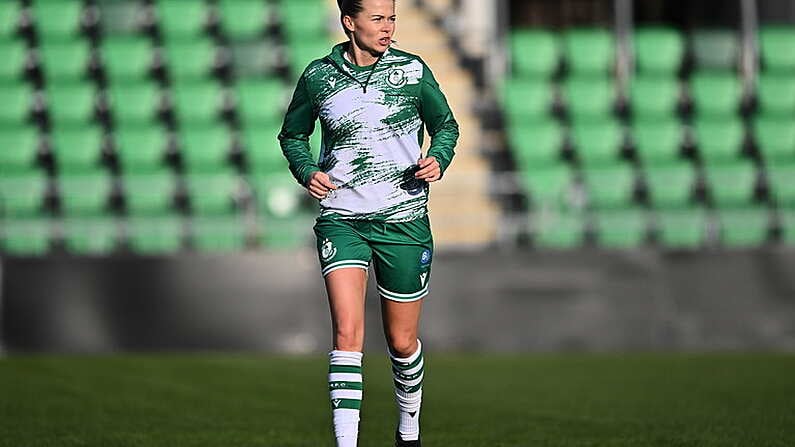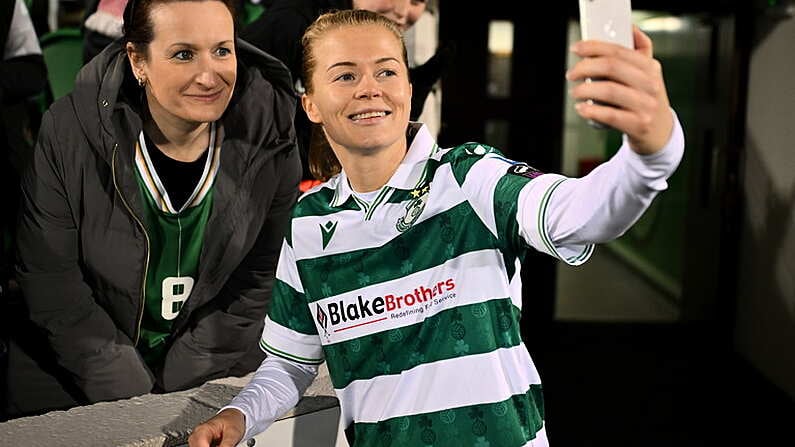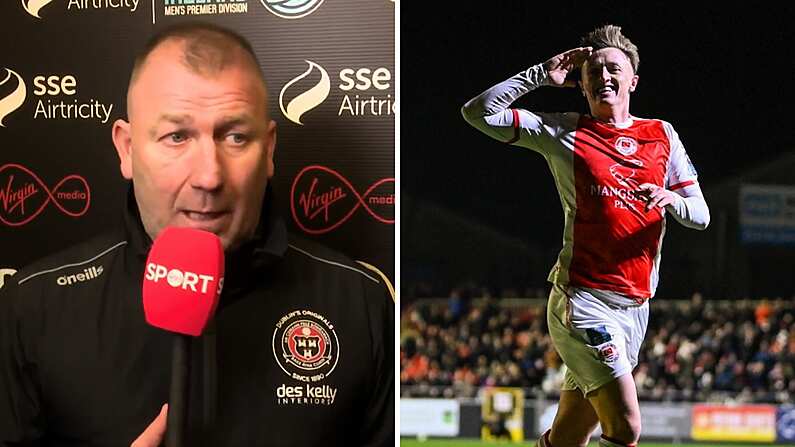"So George, how would you like to be remembered when you're gone?".
A pretty heavy question for ten o'clock in the morning.
But then again, George Hamilton is the man who has found the words to wield the matter of football's greatest moments, so you trust him not to find the answer elusive.
The reason we are having this conversation by the way, is that, without wishing to alarm anyone, George Hamilton has written his will.
2011 brought a ghastly crossing of paths with reality, as Hamilton was rushed to Vincent's hospital for emergency heart surgery owing to a blocked valve. As the news filtered across the country of his illness, a nation hel-...well, you can finish it from here. Thankfully, he made a full recovery.
During the course of his recovery, Hamilton got to know the work of the Irish Heart Foundation, and when recently asked as part of My Legacy Week to consider leaving a charitable donation as part of his will, he knew where it would be going.
Having been approached to do it I thought 'that makes perfect sense', and there was only one place it was going to go. When something like that happens to you, you realise there is never enough money in the health sector to run the thing properly.
What was done for me could never have been done without previous research, and without people working hard and giving up time and money in years gone by. So if there was any small way in which I could make a contribution I thought it would be a very good idea to do it.
Drawing up a will, reckoning with the end of life in a solicitor's office is daunting, although Hamilton sees it differently. "I think the younger you are the worse it appears. It's very straightforward, ultimately you have to decide what you want to happen, and if you don't it could be done for you; it could be made by people who don't know you or have anything to do with you. So you may not have any say over where it goes, and it could, perish the thought, end up going to the government!".
With legacy payment in place, few will disagree that George Hamilton's own legacy is secure. He has been the coruscating custodian of Irish football broadcasts for more than 40 years, having started out on radio for the BBC. There, he was mentored by giants: the mellifluous Bill McLaren and former Welsh rugby fly-half Cliff Morgan, famous for his commentary of Gareth Edwards' try for the Barbarians against New Zealand.
When Morgan ascended to Head of Sport for BBC Radio, he whisked Hamilton from Belfast to London to train him in the art of radio commentary. His lessons were simple:
What sticks out in my mind is being told that it was all about being relaxed in the job that you're doing. You've been given the best seat in the house and you have been afforded the opportunity to watch what people would pay money to see. You're there to interpret for them, so just tell them what's happening.
For radio, the tips imparted were simple: get the geography right (as there is no point in anyone listening if they don't know where the ball is) and keep on reading out the score. Hamilton soon became versed in TV commentary too (his first television gig was a Five Nations game between Ireland and Scotland in 1974) and pithily describes the differences between the two mediums: "Radio is about knowing what to say; television is about knowing when to say it".
He doesn't script any lines, he sees it as inimical to the television commentator's main job of capturing the moment. "You'll notice sometimes at the end of a match, a commentator will come out at the end with a fabulous line full of statistics... he's had that in his bag and he couldn't wait to get it out! I don't think that's a good commentator".
Hamilton has always been able to recognise the magnitude of an occasion. He recalls his first World Cup final commentary, in Mexico in 1986.
I remember my first World Cup final. Jimmy Magee, the late Tim O'Connor and I arrived by car. We parked the car, and as we were walking through the car park toward the Azteca Stadium, it hit me at that moment. I was pumped up as it was my first World cup final, and pointed at the Azteca and I said to them in my enthusiasm, "Look at that. We're going in there, and three hours from now virtually everyone with a television in the world will be looking in there". Wow!
His is a career of finding pith in heft. "The nation holds its breath", for example, came from the a message in his ear that the six o'clock news had cut live to the shootout against Romania, meaning there was nothing else for the country to watch.
Russia 2018 will be Hamilton's eleventh World Cup. Memories from previous tournaments burble along at a fair old rate, shreds of memories fizzing up:
The first World cup was in '78, in Argentina. This was the first time this kid from Belfast had been at a World Cup, and it wasn't a case of it being at Wembley. It was on the other side of the world. It was an ambition fulfilled, arriving and saying, 'Gosh, I'm actually at the World Cup'.
One of the matches I did was Scotland/Holland. Archie Gemmill scored a wonderful goal, he slalomed his way through the Dutch defence. That was huge. I also got the chance to do Brazil at my first World Cup.
I got to do Pat Jennings' last game for Northern Ireland in 1986, against Brazil on his 41st birthday. Oh, and the quarter-final between France and Brazil, which is possibly the best match I have ever seen. It just gets better and better. Even the awful final in California, which kicked off at 12 o'clock. My stopwatch melted, it was so hot. But they've all had their moments. Ireland were there of course in 2002.
2006 I loved because it was in Germany. My subject in Uni had been German and French, and I had lived in Germany. This was the whole of Germany and not just West Germany, so to get to Leipzig for the first time, to see Berlin as it was, it was just terrific.
South Africa, great. Brazil, great. They've all been great in their own ways.
2018 also brings with it the irresistible prospect of the Republic of Ireland's attendance. Hamilton laughs at the notion that Ireland have somehow "won the playoff draw", but is also points out the reality that Denmark were the most attractive opponent Ireland could have drawn.
"I think it could have been a great deal worse. We could have been down in Bari or somewhere. And as they say, lightning doesn't strike twice, we've had our good result against Italy! That would have been a horrible draw. We've never had a good record against Croatia, so we didn't want them, either". He does preach caution regarding the Danes, however. In 1985, it was Denmark who ended Eoin Hand's tenure by knocking Ireland out of World Cup qualifying by running us ragged at Lansdowne Road. Hamilton is not alone in hoping that this "curious irony" is not portentous.
If the present Irish team can avoid repeating history, they will join George Hamilton in Russia next summer. After all, he still has a few "it's theres!" left to vent from his throat.
But when the day comes that he doesn't, how would he like to be remembered by those who have listened to him?
You hope the impression you leave is a smile on their face, saying 'Yeah, he was ok'.
George Hamilton was speaking to Balls to promote My Legacy Week, about which more detail can be found here.
The Irish Heart Foundation can be found online here.


